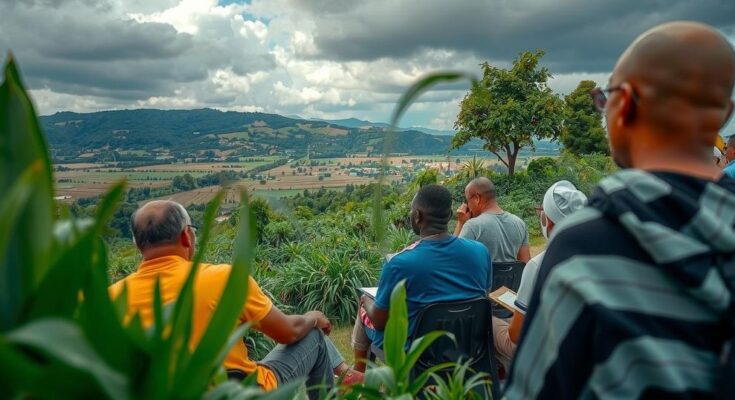The KUJ and IFJ organized a workshop to enhance skills among Kenyan journalists in climate change and environmental reporting. With challenges such as data scarcity and reporting resources identified, the session focused on effective storytelling and accountability. Key themes included the role of media in climate action, essential tools for climate journalism, and the importance of community engagement.
A recent workshop organized by the Kenya Union of Journalists (KUJ) and the International Federation of Journalists (IFJ) united 18 journalists from diverse media outlets across Kenya. The workshop aimed to enhance participants’ skills in climate change and environmental reporting, emphasizing the critical role of storytelling in raising awareness. Eric Charles Oduor, Secretary General of the KUJ, emphasized that climate change represents a paramount narrative of our era, urging journalists to highlight local challenges and adaptation strategies pertinent to their communities. Pa Louis Thomasi, Director of IFJ Africa Office, underscored the prevalent impediments that African journalists face in reporting on climate issues, such as the scarcity of reliable data and government opacity regarding crucial environmental information. He noted the limitations of private media resources, which hinder comprehensive investigative reporting. This situation accentuates the necessity for training more journalists to enhance their capacity to report on climate change effectively. Marvel Powerson, the lead trainer at the workshop, advocated for a rigorous approach to climate journalism, underscoring the necessity of fact-checking and sourcing credible information. She highlighted the importance of cultural sensitivity, urging journalists to engage with affected communities for a comprehensive understanding of their challenges. Moreover, Powerson emphasized the responsibility of journalists to advocate for accountability in climate finance by insisting on transparency from governmental bodies. The workshop explored several thematic areas, including the media’s role in promoting climate action, essential tools for climate journalism, case studies illustrating effective reporting, media freedom in context with climate justice, and the evolving challenges journalists face in covering these critical topics.
This workshop is a part of ongoing efforts to enhance the capacity of African journalists in reporting climate change and related environmental issues. Acknowledging the unique challenges faced by the continent in this regard, including limited access to reliable data and resources, professionals are working together to empower journalists with the necessary tools and knowledge. This endeavor is critical, as Africa is disproportionately affected by climate change yet often underrepresented in media narratives surrounding this crucial global topic.
In conclusion, the workshop conducted by KUJ and IFJ represents a significant step in equipping Kenyan journalists with the skills needed to report comprehensively on climate change and environmental issues. The emphasis on storytelling, cultural sensitivity, and accountability in climate finance signifies a collective movement towards more robust and informed media coverage that could pave the way for greater awareness and action in the fight against climate change.
Original Source: www.ifj.org




